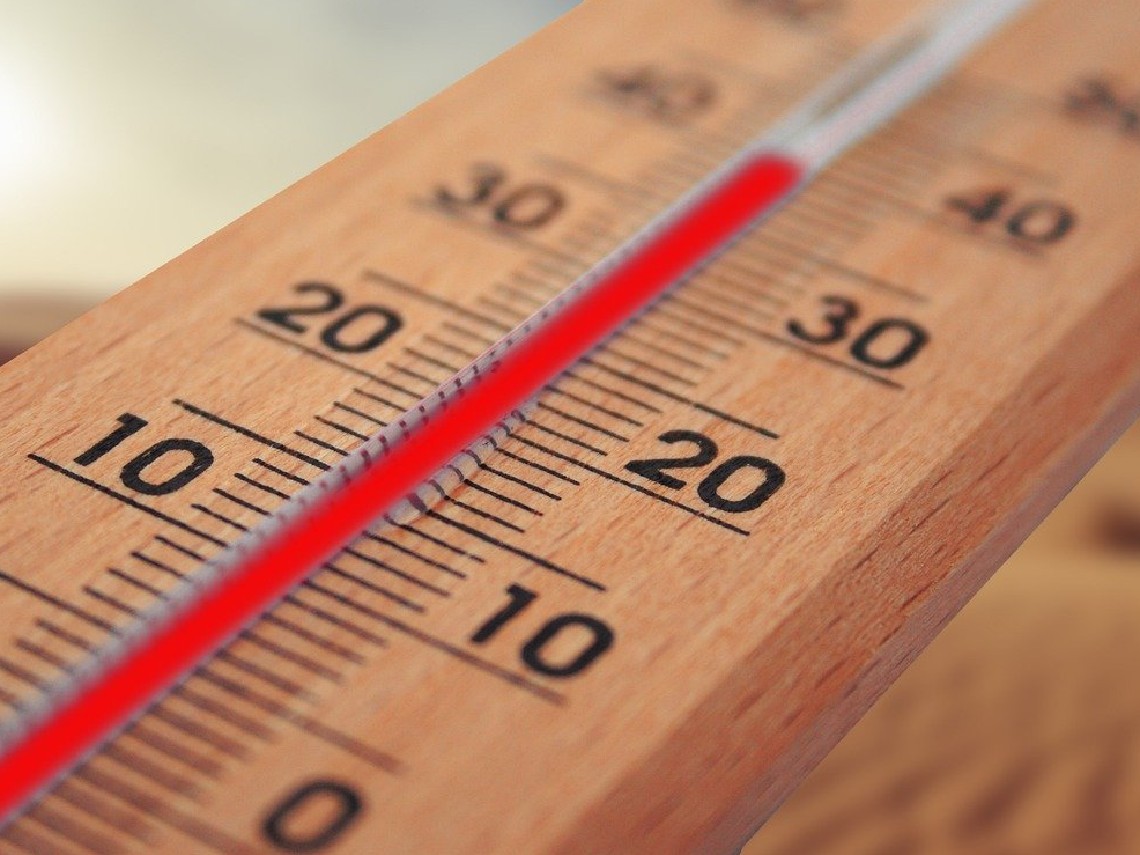
Most of us welcome hot weather, but when it's too hot for too long, we need to consider taking steps to look after employees and consequently the well-being of the business.
Employers must provide a working environment that as far as ‘reasonably practicable’ is safe and without risks to health. You also must assess the risks and put in place any necessary prevention or control measures. The law does not specify a maximum temperature for workers, simply stating temperatures inside workplace buildings must be ‘reasonable’. The Approved Code of Practice to the Workplace Regulations says: ‘all reasonable steps should be taken to achieve a comfortable temperature’.
The Code gives the following examples of what can be done to ensure a reasonably comfortable temperature:
- insulating hot plants or pipes
- providing air cooling plants
- shading windows
- siting workplaces away from places subject to radiant heat
If this is not enough, the Code says employers must install local cooling systems, increase ventilation, or install fans. It also says other factors must be taken into account when assessing what a ‘reasonable temperature’ is.
Here are some tips for you to help survive the heatwave.
Simple measures worth considering include the following.
- Encourage employees to stay properly hydrated. Taking regular sips of water will help them keep cool and maintain concentration. We all need about 1.5-2 litres a day in this heat.
- Consider offering extra breaks.
- Relax the dress code – the issue will be whether the clothing is acceptable in the context of the job is done
- Redesign the work area – moving people away from windows or installing reflective film or blinds to windows
- Install fans or natural ventilation -providing fans or windows that open can help workers feel cooler
- Allow flexible working arrangements – giving staff the flexibility to finish either earlier or later can help
- Certain disabilities, such as COPD and arthritis make working in high temperatures particularly difficult, so consider any reasonable adjustments that need to be made to help them do their jobs safely.
Staff working from home can manage their environment by opening windows first thing when the air is coolest, then closing sun facing windows and curtains as the sun gains heat. Work on the lowest floor possible and wear light loose-fitting cotton instead of dark and/or synthetic materials. Use fans in an adequately ventilated area. Make sure the room you are in has an open door or window (facing away from the sun) so fresh air can flow through the room. When using a fan, have the door open to allow for airflow. Placing a tray of ice cubes in front of the fan will cool the air blown around the room.
Most people complain about interrupted sleep during a heatwave. The following tips can help tired staff get a good night’s sleep.
- Have a cool or lukewarm shower or bath just before going to bed. This cools the body directly and can help reduce the temperature of your skin.
- Wet your face and arms with a face-washer or towel, or use a water filled spray bottle, then stand in front of a fan.
- Soak your feet in cold water for ten minutes before going to bed, as heat is lost more quickly through your extremities (feet and head). Wetting your hair is another alternative.
- Apply cool wet cloths, cold water or ice packs to sweat gland area of the skin (e.g. armpits),as these areas are where your blood flows closest to the surface of your skin.
- Apply wristbands soaked in cold water, as this will have the similar effect.
- Avoid exercising close to bedtime, as it will increase your internal temperature. If you choose to exercise, exercise several hours before bedtime to allow your body the opportunity to cool down.
- Avoid excessive heat build-up during the day by reducing your activities.
- Avoid hot, heavy or spicy food/meals, particularly near bedtime.
- Also avoid chocolate or caffeinated drinks (tea, coffee, and energy drinks) in the late afternoon or evening, as these can keep you awake. Avoid alcohol and caffeinated drinks as they increase dehydration.
***
If you’re an employer with HR queries and problems, get in touch!
Sign up for our free resources and free weekly tip - subscribe here.
Phone 0345 644 8955
LinkedIn Russell HR Consulting
DISCLAIMER
Although every effort has been made to ensure the accuracy of the information contained in this blog, nothing herein should be construed as giving advice and no responsibility will be taken for inaccuracies or errors.
Copyright © 2020 all rights reserved. You may copy or distribute this blog as long as this copyright notice and full information about contacting the author are attached. The author is Kate Russell of Russell HR Consulting Ltd.
Latest blog posts
- Is There a Santa Clause?
06 / 12 / 2023
- Lend Us a Hand!
22 / 11 / 2023
- What Happens When There is a Clash in Protected Characteristics?
17 / 10 / 2023
- Encouraging a Healthy Workforce 2
21 / 09 / 2023
- Encouraging a Healthy Workforce
23 / 08 / 2023
- What a Disaster - (But We Have a Cunning Plan!)
20 / 07 / 2023
- It’s Time We Stiffened the Sinews
14 / 06 / 2023
- Why Is It So Important to Develop Emotional Resilience?
16 / 05 / 2023
- When is a discretionary bonus not discretionary?
20 / 04 / 2023
- Recovering Training Costs 15 / 03 / 2023
